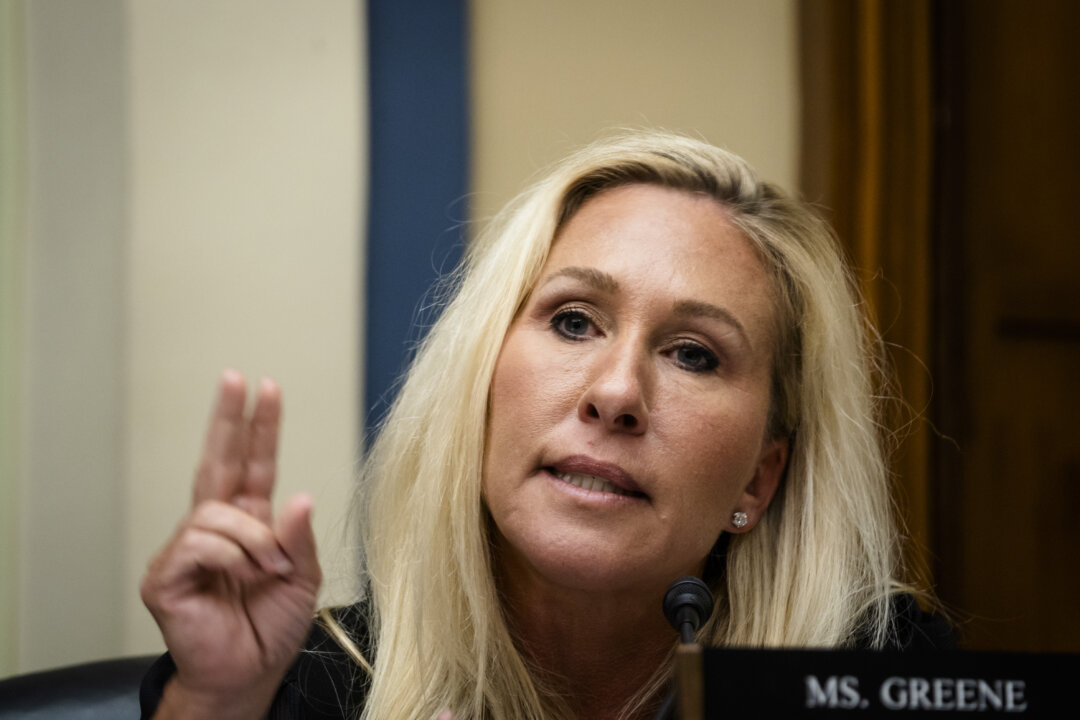Representatives from both parties leveled accusations at each other during heated hearing on improper payments by government.
News Analysis
Republicans and Democrats on the House Subcommittee on Delivering on Government Efficiency (DOGE) sparred on Feb. 12 about the hundreds of billions of tax dollars lost annually to improper payments, but little was said about the elephant in the hearing room.
The elephant is the 13,956 open inspector general (IG) recommendations—including more than 2,000 that are at least five years old—for huge cost-savings and efficiencies that could have prevented most if not all of the estimated $162 billion federal departments and agencies paid to undeserving recipients just last year.
Plus, the Government Accountability Office (GAO), the investigative arm of Congress, has more than 300 of its own recommendations to departments and agencies that have yet to be implemented.
The GAO estimates that $2.8 trillion has been lost to improper payments since 2003 when the agency began tracking the problem.
Congress approved and President Donald Trump signed into law in 2019 the Good Accounting Obligation in Government Act (GAO-IG) requiring departments and agencies to explain to Congress why IG recommendations have not been implemented.
Dan Lips, Senior Fellow for the Foundation for American Innovation and a veteran Senate staffer focusing on IG-related issues told The Epoch Times that Congress needs to be much more active in its GAO-IG oversight.
“Congress needs to do much more to ensure that federal agencies implement watchdogs’ advice for good government reforms. GAO reports that 30 percent of its recommendations made four years ago have been ignored.
“Congress should use its oversight and appropriations powers to require agencies to enact cost-saving reforms,” Lips said.
House Oversight and Accountability Committee (HOAC) Chairman James Comer (R-Ky.) plans a hearing this month on the IG issues. Comptroller-General Gene Dodaro, who heads GAO, will be the lead witness for that hearing.
Rep. Marjorie Tayler Greene (R-Ga.), chairman of the House DOGE panel, pledged in her opening statement to the hearing that her subcommittee “will fight the war on waste.”
“This week, we turn our attention to improper payments by the federal government, including in Medicaid and Medicare,” she said. Greene didn’t bring up the IGs.
Rep. Melanie Stansbury (D-N.M.) did mention the IGs, saying in her opening statement that “the people who actually investigate waste, fraud, and abuse are the inspectors general who Donald Trump fired in his first week in office.”
Trump’s termination of 17 of the 74 IGs was also noted by other Democrats during the hearing, but none brought up the thousands of open recommendations. When Biden left office Jan. 20, there were 15 vacant IG positions.
The IG system was launched in 1978 by President Jimmy Carter and requires presidential nominations of IGs for at-will employment with Senate confirmations. Presidential firings of IGs have not been unusual, with President Ronald Reagan firing 16 of them early in his first term.
The Epoch Times requested comments on the open recommendations from spokesmen for Stansbury, HOAC Ranking Member Gerald Connolly (D-Va.), who spoke during the hearing, and the other five Democrats on the subcommittee.
The five are Rep. Eleanor Holmes Norton of the District of Columbia, Rep. Stephen Lynch of Massachusetts, Rep. Robert Garcia of California, Rep. Greg Casar of Texas, and Rep. Jasmine Crockett of Texas.
No response was received by publication time.
The hearing’s witnesses provided evidence of chronic improper payments by federal programs, including Social Security, Medicare, Medicaid, and the multiple COVID-19 Pandemic Relief programs approved by Trump in 2020 and his successor, President Joe Biden, in 2021 and 2022.
“The scope of this problem is not limited to any single agency or initiative—Medicaid, Medicare, Unemployment Insurance, and the Supplemental Nutrition Assistance Program (SNAP) continue to be plagued by fraud, mismanagement, and outdated verification systems that allow ineligible recipients and criminal networks to exploit loopholes,” Haywood Talcove, CEO of LexisNexis Risk Solutions for Government, testified.
Talcove, whose firm specializes in helping governments fight fraud, pointed to organized crime, insider threats, and nation-state actors as “the most dangerous exploiters” of government assistance programs.

Stewart Whitson, a former FBI Special Agent who is now the senior director of federal affairs for the Foundation for Government Accountability (FGA), focused on Medicaid fraud, which he claimed accounts for 20 percent of all improper payments in recent years.
“Improper spending in Medicaid alone is on track to cost more than $1 trillion over the next 10 years. More than 80 percent of Medicaid improper payments are due to eligibility errors,” Whitson told the hearing.
Dawn Royal, director of the United Council on Welfare Fraud (UCOWF), told subcommittee members that federal programs rely too heavily on self-identification verification by benefit recipients.
“Applicants are not required to provide independent verification of identity, income, residency, or other key eligibility factors. Safety-net programs are supposed to be ’means-tested,‘ yet program rules, regulations, and guidance have increasingly relied upon a ’Trust Everyone’ mindset,” Royal said.
“It’s time to return to ‘Trust but Verify’ and restore the public’s trust in the effective administration of taxpayer resources.”
Dylan Hedtler-Gaudette, director of government affairs for the Project on Government Oversight (POGO), who was the minority witness for the hearing, did mention the IGs in his written testimony.
Hedtler-Gaudette encouraged the subcommittee to “strengthen the independence and efficacy of inspectors general.”
“Inspectors general are vital to identifying and eradicating waste, fraud, and abuse in the federal government,” he said.
Referring to the Trump IG firings, Hedtler-Gaudette said “Congress should further solidify inspector general independence by providing for-cause removal protections.”
“This will further insulate inspectors general from political pressure and enhance their ability to fulfill their independent watchdog function.”

